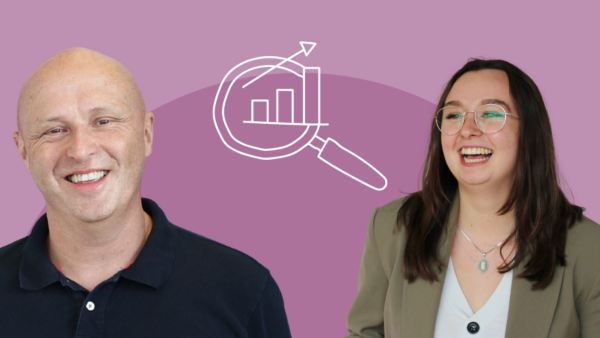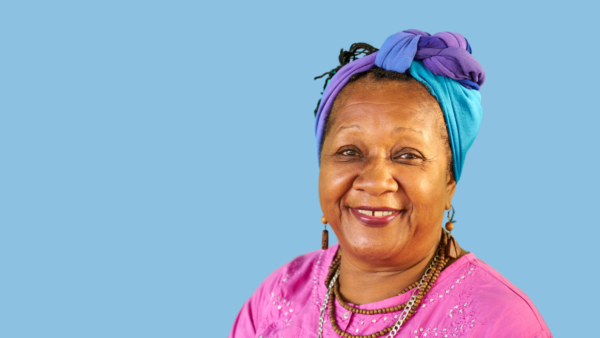Something we tend to forget as adults as we take on more responsibility, more life baggage, more ‘shoulds’ and ‘musts’, is how to reconnect with the child that is still there in all of us. A particular child as well, our ‘free child’, the child who did things for the sheer joy, the enjoyment, the fun, the feeling.
As we grow, it’s easy to lose that connection with the younger freer us and all too soon, the opportunities, and responsibilities, that we so craved as children moving into adulthood, can feel more like a burden at times and can keep us distant from the inner free spirit that was the child us. Today’s podcast is about finding your joy as an adult – what makes you feel good just for you and getting back to that. This podcast is best listened to as a follow on to ‘How to change the habits of a lifetime’, which is at Season 6, episode 8.
My name’s Dr Paul Brewerton, the strengths guy. I podcast each week in time for your morning transition to work to set you up for a strong and positive week ahead. My focus is on strengths and how to use them to get the most from life and from work.
Why find your joy?
Firstly, why would you even want to find your joy, what’s the value? Doing so will help you to be your whole self, more mentally and emotionally well, to feel more relaxed and at ease, better able to recharge yourself and make it through tough times, and better equipped to make the transition to a positive mental state, as I covered in my podcast on the path of possibility at season 7, episode 4. It can also help you better identify your core purpose, when you really get a handle on why those things feel so good to do.
Before we get into top tips, a quick recap on the background to today’s podcast, which relates, in part, to Eric Berne’s theory of Transactional Analysis that I talked more about in my earlier podcast on ‘how to change the habits of a lifetime’. Berne talks about parent, adult and child states of being and how we switch between these as we move through each day, a lot of our behaviour being driven first by our inner dialogue – what we tell ourselves – and then by the dialogue we have with others.
Our ‘child’ state
In our ‘child’ state, which we all find ourselves in for much of the time, we can be either ‘free child’ – that is the child who is less concerned with approval from others and following the rules, and more concerned with engaging in activities and thoughts that are fun and enjoyable to them, or we can be ‘adapted child’ – the child who follows particular patterns of behaviour in order to get approval and, ultimately, love from others.
Berne’s view was that the adapted child response to the world can sometimes be helpful and constructive to us, but at other times, it can lead to thoughts and behaviours which don’t serve us but can actually lead to us becoming trapped in patterns of behaviour and thinking that we believe we need to engage in in order to be accepted in the world, without any real evidence for this. These patterns of thought and behaviour came from early childhood and include motivational drivers such as pleasing others, being strong, being perfect and trying harder. As an adult, these drivers can become compulsive and maladaptive if we allow them to become too strong an influence.
The antidote to this is to cultivate an inner voice of approval and acceptance that you are enough just as you are, that you don’t have to ‘do’ anything in order to be accepted, just ‘being’ you is enough. This represents the voice of another state that you move through each day – that of the nurturing parent – not an actual parent but us providing parental guidance and support to ourselves, as adults, in a nurturing, approving way, without criticism or judgement.
So in order to make space for your inner free child to be allowed to explore what brings joy, you may need to give yourself permission as a nurturing, accepting parent, that this is ok and that, at least for now, you can park adult responsibilities and “musts” and “shoulds” and focus on you, the raw enjoyment and pleasure and feeling part of you so that you can bring your best self to the rest of your day and week, replenished and recharged and “funned up”.
Most of us don’t do this, or don’t do it often, so that access to the joy-feeling part of ourselves can get a little distant at times. Which means we can get caught up in all the doing, without enough of the being, or the fun, to be all of our authentic selves. Interestingly, there is a connection here to when some people identify their strengths for the first time – strengths being those qualities that energise us and which we are great at or have the potential to become great at.
For some people, it seems tricky to move past a new awareness of their strengths to then using them more of the time, because they’re so wired towards focusing on improving in areas where they feel weak or less competent, and that comes from being told, often for many years, that we should or must improve in those areas, rather than focusing on areas that feel naturally fun and enjoyable to use and which actually might be the qualities that create the greatest value for others at the same time.
For these people, the strengths awareness is there, but moving past awareness to a commitment to action can be a little stop-start because they don’t give themselves permission to use their natural strength areas more of the time. Perhaps because it feels too pleasurable or indulgent somehow. When actually, the value to themselves and to the wider world, is much greater than that discomfort they might initially feel.
There are two steps to finding your joy – and actually to using your strengths – that will help you:
The first is to gain awareness.
The second is to give yourself permission to be you – authentic, wholehearted you – which will need you to be kind to yourself, to be accepting of yourself.
Gain awareness of what brings you joy
So challenge 1 is to give yourself some time, and the permission, to reflect on what gives you sheer unbridled joy right now, with where you are in your life. If it helps, and it often will, you can reflect back on what you absolutely loved doing as a child, when you were just being you. Was it sport, or singing, or dancing, or reading, or staring at the clouds, or lying in in bed, or having a bath, or gaming, or drawing, painting, cycling, writing, playing board games, chatting with friends, watching movies, supporting causes, making things, organising things, what was the stuff you did to get enjoyment?
When did you get lost in the moment, completely absorbed in what you were doing, to the point that time just flew by and before you knew it, it was the end of the day and time for dinner or bed. Working this out will help you on your path to finding your joy in the now.
It’s also worth building in some of the things perhaps that you’ve discovered on your journey since childhood, things that have brought you joy that you didn’t know would back then because you hadn’t appreciated or experienced them so much as a child (although you might have of course) – cooking, driving, eating, yoga, debating with friends, travelling, parachute jumping, reading newspapers, etc, etc.
So you can see that these lists are endless and are 100% not prescriptive and the one person who’s best placed to work out where the joy came from is you.
Once you’ve worked out your sources of joy, you have gained awareness. Good job.
Build joy into your life
Challenge 2 is to reflect on how you would like to act on this awareness. Would you like to do or try more of the things you’ve put on your list? And if so, how are you going to do that? It may not be as easy to just move towards those things as it was when you were a child. That said, as an adult, you may feel that you have more control over your life than you did as a child, so you may feel this is more possible than ever. The headwinds you’re likely to face though are firstly to give yourself permission to experience joy – so try using the nurturing parent voice to give yourself that permission.
Then perhaps reorganise or reprioritise your time to make space for joy. And that might mean pushing some things down the priority list that are shoulds or needs or musts. Don’t try and do it all in one go, give yourself the best chance by taking it step by step, with a long term aim of having enough joy in your life for you to feel more happy, content, authentic and free.
Quite simply, those are the two steps. I wish you all the very best of luck in finding your joy, your felt experience, reconnecting with your free child and working out how you can build more of that into your life. Have a great week ahead.
This podcast is now available on all major podcast platforms. Find it on Apple podcasts, Spotify, Google podcasts, Stitcher, ACast and Soundcloud. Check out the back catalogue and subscribe to get them every Monday morning!












